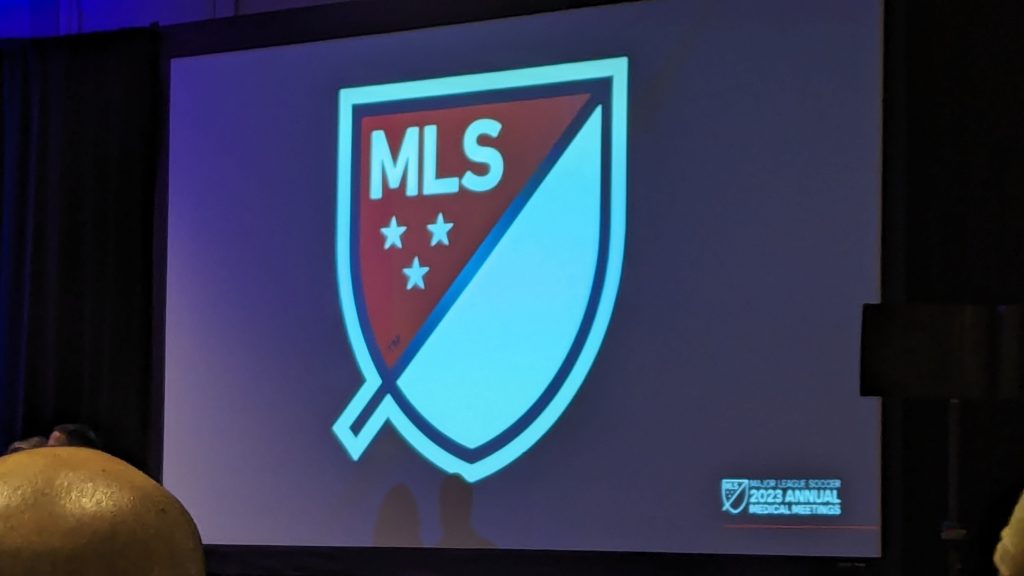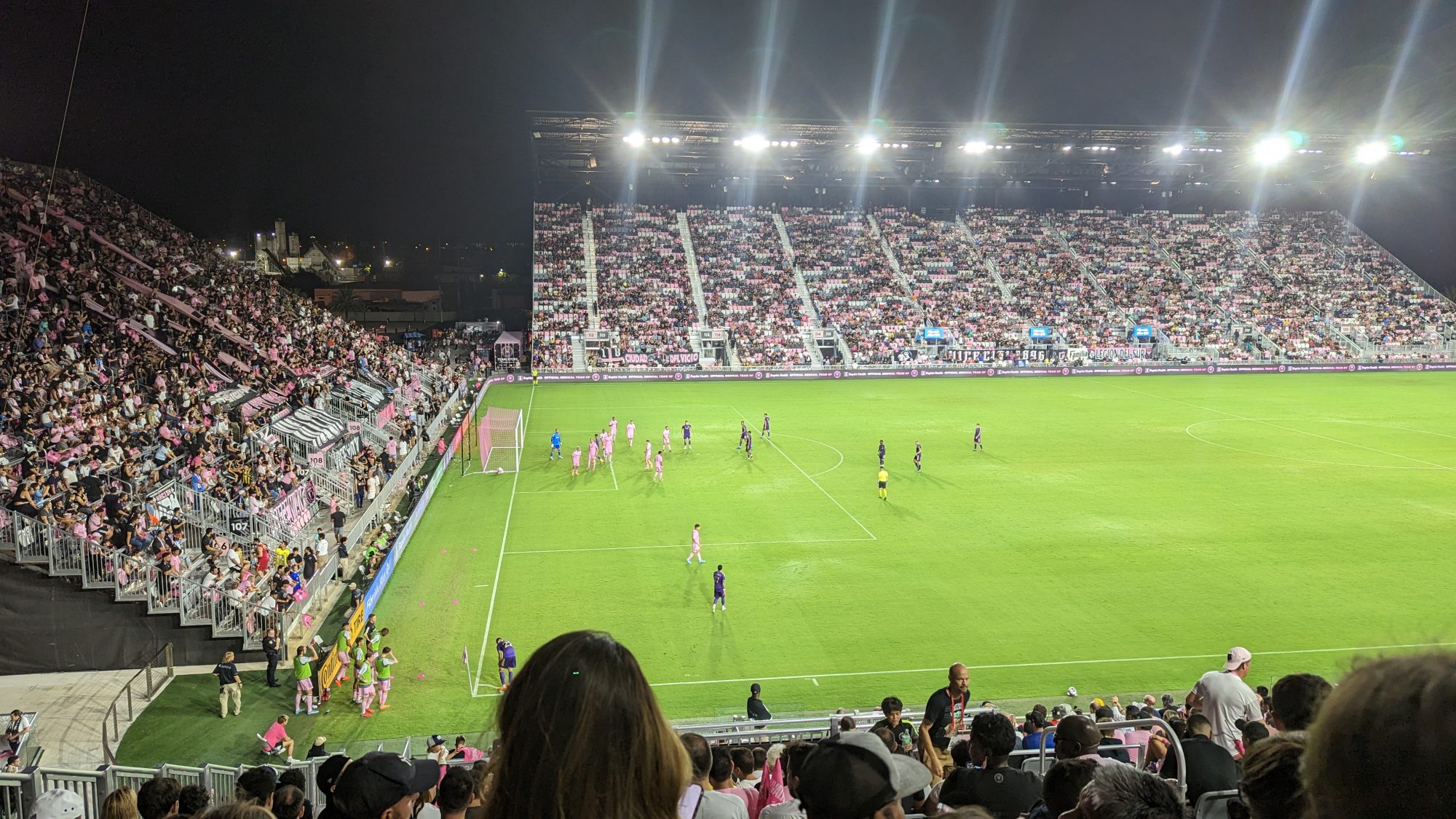You may have seen that last week we announced our partnership work with Inter Miami CF. I’m really excited about it, and not just because I have now shaken a hand that has shaken the hand of Messi. And there’s a whole stack of research around secondary DNA transfer, so basically I’ve shaken the hand of Messi. It’s science.
My feeling is that any partnership that a university invests its time and resources in (remember this is all public money) should benefit both sides. So in this case, we will be collaborating on research, CPD, education and community work. But the thing I’m most excited about is the student mobility opportunity. I mean, imagine being able to take a first gen student from the Tees Valley, one of the most deprived areas of the country, and support them to travel to America to work with some of the greatest footballers in the world. That is social mobility in action.
We’ve done a lot of work in Health & Life Sciences within the footballing context. There’s obviously this great new collaboration with Inter Miami, but we also launched our Football Academy recently, our Sports and Exercise team is ranking in the top 5 nationally for student satisfaction, and we are doing increasing amounts of work with the MFC Foundation.
Now, I do acknowledge that I’m a bit biased in that I do like football. I’ve been a lifelong West Ham fan (it’s how I’ve learned to expect to pull disaster from the jaws of success), although Boro are my second team and I do love going to the Riverside. Plus, Carrick is the manager there and he was a West Ham midfield maestro. I also used to play a fair bit back in the day, including during my degree where I was between the posts for the indomitable Crookes Crackerjacks. Crookes is the part of Sheffield we used to live in, our captain was called Jack, and we were all too polite to go “Err, hold on…”.
Although I don’t play anymore, I do love a bit of Football Manager on the PC. It got me through my PhD and I’ve been playing it ever since. Arguably I could have finished my doctoral work sooner, but you know, I had just won promotion with Karlsruher SC and everything was in the balance. Three at the back with attacking wingbacks and a flexible midfield is the hill that I will die on. I’ve also found books on football management to be really helpful in my day job, largely because that kind of management emphasises success as a team through individual improvement, accountability and a collective understanding of the strategy. Right now, I’m actually really annoyed that Klopp has just stolen my ‘leaving an organisation having transformed it into a winning powerhouse through an energetic high intensity philosophy’ thunder. The bastard.
Anyway, I have clearly digressed. The great thing about football is that it crosses backgrounds and disciplines. It’s such a unifier that it doesn’t matter where I travel for work or who I speak to, usually it provides some sort of way in to a chat. It also provides a way in to parts of society that a university wouldn’t on its own – there are many places where a club badge carries more weight than a university logo. Perhaps more importantly, we need to remember that clubs are massive. When we think about working with them, we immediately think of our sports science team, but it also provides opportunities for our physios, dieticians, chiros, mental health nurses, as well as events management students, journalists, data scientists and so on and so on. Of course players and staff should be embedded within the university too for teaching, research projects, CPD and workforce planning. And that’s all before we start to consider the sharing of facilities and infrastructure. Engaging with football clubs provides an opportunity to work strategically and holistically for the benefit of each other and also the town or region in which they are based. In Middlesbrough, the university, the club and the hospital are the key employment and economic anchors – with our faculty sitting in the middle of this Venn diagram.

As well as our two trips last year to visit the club, we also attended the MLS Medical Symposium in Fort Lauderdale. As we develop our medical offer in Teesside, I can see a sporting strand running through it. We can take the great work being performed with elite athletes and apply that to our local communities as we look to increase the amount of physical activity being undertaken. We know that this has a very positive benefit to health, mental wellbeing and outcomes following surgery. While I was over there I was also able to attend some of the sessions on leadership too, and these were fantastic for discussing the complexities of leading and managing multidisciplinary teams within a competitive external environment. A key theme there was the importance of building a sense community and good communication.
The potential when working with football clubs is all very exciting, but the real take away message is that clearly I should get back to my Football Manager save. For work purposes…

Pingback:Anniversar-three – Prof Tim Thompson